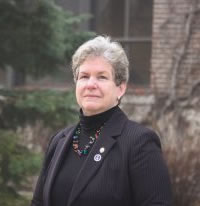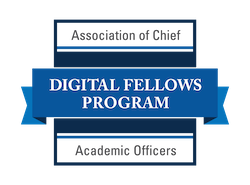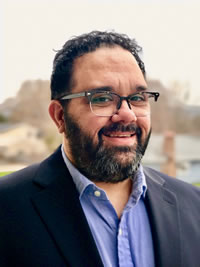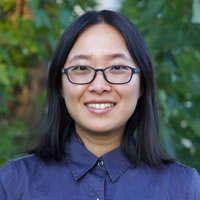Digital Faculty Fellows
Welcome
Welcome to WSU's Digital Faculty Fellows Program. Launched in September 2017, this program supports the use of digital courseware to improve engagement, personalization, and successful completion in one or more lower-division gateway courses and builds significantly on WSU’s history of transforming instructional practice through digital learning. WSU instructors are invited to submit proposals for innovative projects based on their areas of interest that would add distinctiveness to our academic enterprise and contribute to student learning through the use of digital and adaptive learning courseware. Faculty selected by competitive review of proposals work with the ACAO Digital Fellows Campus Team to fully define and implement their projects, participate in ACAO Digital Fellows activities (potential campus visit, conference attendance), and prepare the resources, assets, and lessons learned that would be of interest to their colleagues, the campus, and the larger ACAO Digital Fellows community. Digital Faculty Fellows receive the following:
- Duty days for the fall semester (to be negotiated with each Digital Fellow, depending on the project)
- Three credits of release time during spring semester (Dean's reimbursed adjunct rate)
- Funding for travel to present projects (negotiated, not required)
- Additional support for any new courseware development needed
Our ACAO Digital Fellows Team

|
The WSU Digital Faculty Fellows Program is an important part of a larger campus effort, led by Dr. Patricia L. Rogers, Winona State University Provost and Senior Vice President of Academic Affairs. Dr. Rogers was one of 32 academic leaders from across the country selected by the Association of Chief Academic Officers (ACAO) to participate in a new Digital Fellows Program. Supported by the Bill & Melinda Gates Foundation, the ACAO Digital Fellows Program provides provosts and chief academic officers with critical information, shared resources, and evidence-based strategies for leading their campuses forward in the effective application of high-impact digital courseware. The WSU ACAO Digital Fellows Team also includes:
|

|
Meet Our 2017 Digital Faculty Fellows
Dr. Gregory Richard

|
Assistant Professor of History & Legal Studies
Dr. Richard will be integrating CogBooks courseware into his History 151 - United States History Since 1865 Quality Matters certified online course. History 151 is a survey of United States history since the American Civil War with special emphasis on post-Civil War Reconstruction, late 19th-century economic and social developments and 20th-century reform movements. Additionally, foreign policy and the overseas expansion of the U.S. economy receive attention, as do Cold War and post-Cold War developments. CogBooks courseware utilizes several different tools to offer students an adaptive experience. "Pretests" allow students to "test out" of elements of the course. CogBooks governs this, along with many other advanced systems of the learning software, with its unique microadaptive system. This is thanks to rule based systems set up by the author or algorithms.
|
Dr. Pingping Zhang

|
Assistant Professor of Mathematics & Statistics
Dr. Zhang will be enhancing her use of the ALEKS adaptive learning system in her Math 115 - College Algebra course by integrating evidence-based video tutorials into the ALEKS system as supplemental resources. Math 115 gives students a rigorous preparation in algebra. Topics include review of basic algebraic concepts; functions and graphs; polynomial, radical, rational, exponential and logarithmic functions; equations, inequalities, systems of equations and inequalities; and applications. Dr. Zhang, who already integrates ALEKS into her course, will add a series of videos that address two common challenges: insufficient explanations for students with weaker backgrounds and too few connections among different concepts. Using observational data collected previously, step-by-step video explanations will be developed based on the theory of Teaching through Variation that address common cognitive obstacles. Teaching through Variation is a popular strategy to promote effective mathematics learning in China, where examples with gradually increased complexity are introduced (Huang, Yang, & Zhang, 2017).
|